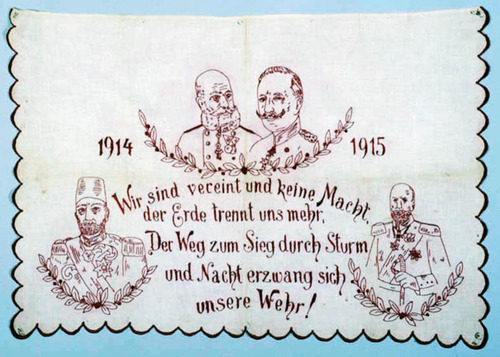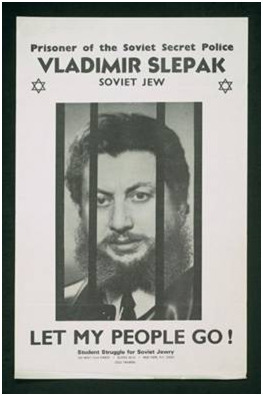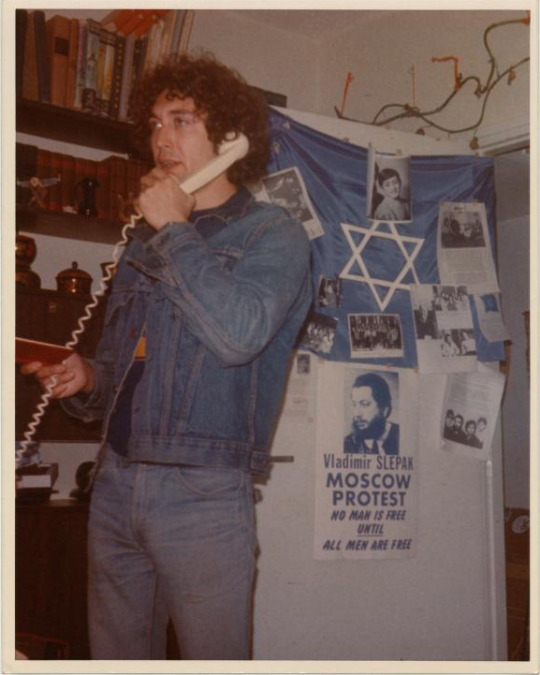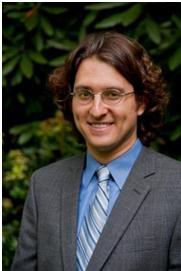
Decorative embroidery by Rose Biegeleisen Axelrod, depicting German ruler and allies during World War I. Translation from the German: “We are united and no power can separate us. Our armies have forced their way, through storm and darkness, to victory."
Collection of Yeshiva University Museum
Gift of Sylvia A. Herskowitz
To mark the 100th anniversary of the beginning of World War I and to consider the war’s legacies in the present day, the Center for Jewish History is launching the World War I and the Jews Initiative, a series of exciting public programs to explore the way that the war transformed Jewish life around the globe. This includes a conference, a film series, a concert and, as a keystone for the centennial celebration, an evening of performance.
Here’s the full schedule, with details about each program and its participants. The Center is located at 15 West 16th St. in New York City.
WORLD WAR I AND THE JEWS
An international roster of scholars will discuss the state of scholarship and introduce cutting-edge research on Jews in World War I, examining the war’s importance as a cataclysmic event in Jewish and world history. In shattering empires and creating new states, the war disrupted Jewish ties around the globe and forged new ones, bringing about an entirely new era of ideologies, nation states, and circumstances that have affected Jewish life to the present day.
Sunday, November 9 (public sessions)
Day 1 – The State of Scholarship
-
9:00am
COFFEE AND REGISTRATION -
9:30am
WELCOME AND GREETINGSJudith C. Siegel, Center for Jewish History
David Engel, New York University -
9:45am – 11:00am
SESSION 1: KEYNOTE PRESENTATIONCarole Fink, Ohio State University
Introductions: David Engel, New York University -
11:15am – 12:45pm
SESSION 2: THE JEWISH WORLD IN 1914 AND 1919: WHAT CHANGED?Marsha Rozenblit, University of Maryland
Introduction: Gennady Estraikh, New York University -
12:45pm – 2:00pm
LUNCH ON YOUR OWN -
2:00pm – 3:15pm
SESSION 3: JEWS IN THE MILITARYDerek Penslar, University of Oxford and University of Toronto
Introduction: Deborah Dash Moore, U of Michigan -
3:30pm – 4:45pm
SESSION 4: POLITICAL AND SOCIAL TRANSFORMATIONS DURING WORLD WAR IDavid Engel, New York University
Introduction: Marsha Rozenblit -
5:00pm – 6:15pm
SESSION 5: THE WAR AND JEWISH CULTUREEmily Bilski, Independent Scholar
Introduction: Jonathan Karp, Binghamton University -
6:30pm
WINE AND CHEESE RECEPTION
Public interested in attending on Sunday, November 9 may purchase tickets online.
Monday, November 10 (for college faculty and students only)
Day 2 – New Research
-
8:15am
COFFEE -
8:45am – 10:30am
SESSION 1: WESTERN AND CENTRAL EUROPE
CHAIR: JESS OLSON, YESHIVA UNIVERSITYErin Corber, Indiana University/Bloomington
‘How to be an “Exemplary Hero”: Jewish First World War Heroes and the Politics of Sacred Union in Wartime and Interwar France’Steven Schouten, Scientific Council for Government Policy, the Netherlands
“Jews and Kashrut in Wartime Germany”Mirjam Zadoff, Indiana University Bloomington
“Brothers in Arms: WWI & the Case of Werner and GershomScholem” -
10:45am – 12:30pm
SESSION 2: EASTERN AND CENTRAL EUROPE
CHAIR: GENNADY ESTRAIKHMihaly Kalman, Harvard University
“The Union of Jewish Soldiers between Ukrainian Nationalism and Soviet Internationism”Daniel Rosenthal, University of Toronto
“Confronting Mss Death: Philanthropy, Public Health, and Jewish Responses to Typhus in Poland, 1914-1921”Polly Zavadivker, University of Delaware
“Rescue and Representation: Jewish Home Front Activists in Russia’s Great War”Rebekah Klein-Pejšová, Purdue University
“Between Refugees and the State: Hungarian Jews and Wartime Hungarian Refugee Policy” -
12:30pm – 1:30pm
LUNCH ON YOUR OWN -
1:30pm – 3:15pm
SESSION 3: OTTOMAN EMPIRE
CHAIR: SARAH STEIN, UCLAMichal ben Yaakov, Efrata College, Jerusalem
“The Social and Economic Impact of the First World War on Sephardi Women in Palestine”Paris Papamichos Chronakis, Brown University
“Global Conflict, Local Politics: The Jews of Salonica and the First World War”Reeva Simon, Columbia University
“World War I and the Jews of BaghdadDevi Mays, Jewish Theological Seminary
“The 1919 ‘Haggadah dela Gerra’ and the Myth of Ottoman Jewish Loyalty in World War I” -
3:30pm – 5:15am
SESSION 4: NORTH AMERICA
CHAIR: HASIA DINER, NEW YORK UNIVERSITYJessica Cooperman, Muhlenberg College
“The US Military in World War I and American Religious Pluralism”Jaclyn Granick, Graduate Institute of International and Development Studies, Geneva
“Organized American Jewish Responses to Child Sufferers of World War I”Melissa Klapper, Rowan University
“American Jewish Women’s Organizations and the Great War”Matt Silver
“Louis Marshall and Transformations in Diaspora Politics during World War I”This panel is sponsored by the Goldstein-Goren Institute at NYU
-
5:30pm – 6:15pm
SESSION 5: CONCLUDING ROUNDTABLE
CHAIR: JONATHAN KARPDavid Engel, Marsha Rozenblit, Sarah Stein, Hasia Diner, Emily Bilski
College faculty and students may register for tickets online at www.cjh.org/thegreatwarconference.
Speaker Bios
Michal Ben Ya’akov (Ph.D., Hebrew University in Jerusalem) is an assistant professor in modern history at the Efrata College of Education in Jerusalem and chair of the history department. She created a unique certification program for Teaching the Holocaust and its Commemoration at the Efrata College for both pre-service and in-service teachers, and has headed the program since 2007. Her academic research centers on 19th and 20th century Eretz-Israel/Palestine/Israel, with special emphasis on North African and Sephardi Jewry, as well on the experiences of North African Jews during both World Wars. In recent years she has focused on Jewish women, particularly, but not exclusively in those communities.
Emily D. Bilski has published on modernism and on the interface between art, cultural history and Jewish experience, and on contemporary art. She has served as curator and consultant to museums in the United States, Europe and Israel. A graduate of Harvard University, she is the winner of two National Jewish Book Awards, for Berlin Metropolis: Jews and the New Culture: 1898-1918 (University of California, 1999) and The Power of Conversation: Jewish Women and Their Salons (Yale, 2005). She is currently editing the volume of Martin Buber’s writings on art for the complete edition of his works; and writing on the history of Munich’s Thannhauser Gallery.
Paris Papamichos Chronakis is Visiting Assistant Professor of History at Brown University. He received his M.A. in Comparative History from Essex University and his Ph.D. in Modern Greek and European History from the University of Crete. A recipient of numerous grants, he was a Rothschild Foundation Europe post-doctoral teaching fellow at the University of Thessaly and a research fellow at UCLA. He is a historian of Southern Europe and the Mediterranean working on the late Ottoman Empire, the modern Greek state, and Sephardic Jewry and holding a special interest in the interrelated histories of the middle classes, interethnic relations, and the passage from empire to the nation-state.
Jessica Cooperman is Assistant Professor of Religion Studies at Mulenberg College. She received her Ph.D. from New York University in modern Jewish history. Her dissertation was entitled, "The Jewish Welfare Board and the American Jewish Cititzen: Jewish Chaplains, Soldiers and Welfare Workers in the First World War.”
Erin Corber is a historian of modern France and modern Jewry. She is Visiting Assistant Professor of European History at the University of Maine. Originally from Montréal, QC, she defended her Ph.D. in November, 2013 in the Department of History and Borns Jewish Studies Program at Indiana University, Bloomington. In spring 2014 she was a Postdoctoral Visiting Research Scholar and instructor in the Borns Jewish Studies Program at Indiana University, Bloomington.
Hasia Diner is the Paul S. and Sylvia Steinberg Professor of American Jewish History, Professor of Hebrew and Judaic Studies, History, and Director of the Goldstein-Goren Center for American Jewish History at New York University. She received her Ph.D. from University of Illinois at Chicago, her M.A. from University of Chicago, and her B.A. from University of Wisconsin.
David Engel is an American historian and Professor of Holocaust and Judaic Studies at New York University. Engel holds his Ph.D. from the University of California in Los Angeles, and completed postdoctoral study at Hebrew University’s Division of Holocaust Studies, Institute for Contemporary Jewry in Jerusalem. He is a Fellow of the Diaspora Research Institute at Tel Aviv University; member of the Carnegie Commission on Ethics and International Affairs and the Commission on Polish-Jewish Relations since 2002. In 1986–87 Engel received Outstanding Lecturer honors at Tel Aviv University; in 1996 he was given the Golden Dozen Award for Excellence in Undergraduate Teaching at New York University.
Gennady Estraikh is Clinical Associate Professor of Hebrew and Judaic Studies and Rauch Associate Professor of Yiddish Studies at NYU. He received his Ph.D. from the University of Oxford. His research interests include Jewish intellectual history in the 19th and 20th centuries with an accent on Yiddish literary milieus.
Carole Fink, Humanities Distinguished Professor of History Emerita at The Ohio State University, has recently published Cold War: An International History and is the author of two prize-winning books, Defending the Rights of Others: The Great Powers, the Jews, and International Minority Protection, 1878-1938, and The Genoa Conference: European Diplomacy, 1921-1922. She has received fellowships from the Fulbright Foundation, the US Holocaust Memorial Museum, the Institute for Advanced Studies in Princeton, the Woodrow Wilson International Center for Scholars, the German Marshall Fund, the National Endowment for the Humanities, the American Council of Learned Societies, and the American Association of University Women.
Jaclyn Granick is working towards finishing her dissertation, “Humanitarian Responses to Jewish Suffering Abroad by American Jewish Organizations, 1914-1929.” She is a Ph.D. candidate in international history at the Graduate Institute of International and Development Studies in Geneva, Switzerland and is spending the 2014-2015 academic year as a Graduate Research Fellow here at the Center for Jewish History.
Mihaly Kalman is a Ph.D. candidate in Jewish Studies at Harvard University. He is currently completing his dissertation on Jewish armed self-defense against the pogroms in Russia and Mandatory Palestine, with a special eye to the history of Jewish paramilitarism during the Russian Civil War.
Jonathan Karp is Associate Professor of Jewish Studies at Binghamton University. He received his Ph.D. from Columbia University. His areas of interest include Jewish cultural and economic history and Jewish-Christian relations. He served as Executive Director of the American Jewish Historical Society from 2010-2013.
Melissa R. Klapper is Professor of History at Rowan University in Glassboro, NJ. She is the author of Jewish Girls Coming of Age in America, 1860-1920 (NYU Press, 2005) and Small Strangers: The Experiences of Immigrant Children in the United States, 1880-1925 (Ivan R. Dee, Publisher, 2007). Her research has been awarded numerous grants and fellowships from such institutions as the Hadassah-Brandeis Institute, the National Endowment for the Humanities, the Schlesinger Library on the History of American Women at Harvard University, and the YIVO Institute for Jewish Research. Her most recent book, Ballots, Babies, and Banners of Peace: American Jewish Women’s Activism, 1890-1940 (NYU Press, 2013), won the 2013 National Jewish Book Award in Women’s Studies.
Rebekah Klein-Pejsova is Jewish Studies Assistant Professor of History at Purdue University. She specializes in Modern Jewish and East Central European social history, with research interests focusing on the problem of loyalty in state/society relations in the region of today’s Hungary, Slovakia, and the Czach Republic since the early 20th century. Prof. Klein-Pejsova earnned her Ph.D. from Columbia University, after completing her M.A. at the Central European University in Budapest, and her B.A. at Bard College. She is the Associated Scholar of the Slovak Jewish Heritage Center in Bratislava, Slovakia.
Devi Mays is currently a Post-Doctoral Fellow in Jewish Studies at The Jewish Theological Seminary, where she teaches on the Sephardic Diaspora and Ladino Literature and Culture. She is a historian of modern Jewry whose primary research interests are in transnational Jewish networks and the modern Sephardic world.
Deborah Dash Moore is the Director of the Frankel Center for Judaic Studies and a Frederick G.L. Huetwell Professor of History at the University of Michigan in Ann Arbor. Her fields of Study include American Jewish history, 20th century urbanization, migration, and acculturation and community building. She received her Ph.D. from Columbia University.
Jess Olson is an Assistant Professor of Jewish History and the Associate Director of the Yeshiva University Center for Israel Studies. Interested in questions of nationalism, religion, and Jewish identity in 19th and 20th century Europe, his areas of research include the Jews of the Austro-Hungarian Empire and Germany, history of Zionism and Jewish nationalism, and the intersection between Jewish Orthodoxy and political engagement.
Derek J. Penslar is the Samuel Zacks Professor of Jewish History. His research specialties are the history of modern European Jewry, Zionism, and the state of Israel. He is currently writing a biography of Theodor Herzl for Yale University Press’ Jewish Lives series. He is co-editor of two scholarly journals, Jewish Social Studies and of The Journal of Israeli History,and is an elected fellow of the Royal Society of Canada and the American Academy for Jewish Research. He is co-chair of the Academic Advisory Council at the Center for Jewish History.
Daniel Rosenthal received his Ph.D. in History from the University of Toronto in 2014. His doctoral dissertation focused on the ways in which all Jews in Poland, irrespective of religious or political affiliations, refashioned their ideas about death, funerals, and burial in the decades between the World Wars due to new ideas of selfhood, changing forms of social cohesion, and the growing regulation of death by the new Polish republic. He is currently a postdoctoral fellow at Haifa University through the Israeli Inter-University Academic Partnership in Russian and East European Studies.
Marsha L. Rozenblit (PhD, Columbia University) is a social historian of Jews in Central Europe. She is the author of The Jews of Vienna, 1867-1914: Assimilation and Identity (1983) andReconstructing a National Identity: The Jews of Habsburg Austria During World War I (2001). She has been at the University of Maryland since 1978, serving as the Director of the Meyerhoff Center for Jewish Studies from 1998 to 2003 and currently as the Director of Graduate Studies of the History Department.
Steven Schouten is a Research Fellow at the Scientific Council for Government Policy in the Netherlands. He is a specialist in Modern German-Jewish History, with focus on intellectuals, food and the First World War. He wrote a dissertation on the early life and thought of the German Jewish writer and public intellectual Ernst Toller (1893-1939) (European University Institute, Florence, Italy, 2007) and published, amongst others, ‘Fighting a Kosher War: German Jews and Kashrut in the First World War’, in Ina Zweiniger-Bargielowska, Rachel Duffett and Alain Drouard (eds), Food and War in Twentieth Century Europe (Ashgate, 2011).
Matthew Silver, from the Max Stern College of Emek Yezreel, received his M.A. and Ph.D. in Modern Jewish History from the Hebrew University of Jerusalem, and has taught as a visiting professor at several universities in North America. His book Louis Marshall and the Rise of Jewish Ethnicity in America was selected as a finalist in American Jewish History in the 2013 National Jewish Book Awards. His latest book, In the Service of the West: A New Look at Modern Jewish History (Hebrew) is being published by Hakibbutz Hameuchad in September-October 2014.
Reeva Spector Simon is Professor of History at Yeshiva University. She previously served as Associate Director of the Middle East Institute at Columbia University and is the author of Iraq between the Two World Wars. She is co-editor and contributor to The Jews of the Middle East and North Africa in Modern Times (Columbia University Press, 2003).
Sarah Abrevaya Stein is Maurice Amado Endowed Chair in Sephardic Studies at UCLA. Vice Chair for Undergraduate Affairs of the Department of History, she received her A.B. from Brown University and her doctorate from Stanford University. Her scholarship has ranged across the Yiddish- and Ladino-speaking diasporas and the British and French imperial, Russian, American, Ottoman and wider Mediterranean, Middle Eastern, and North African settings.
Mirjam Zadoff holds the Alvin H. Rosenfeld Chair in Jewish Studies and is Associate Professor for History at Indiana University, Bloomington. She has studied at the Universities of Vienna and Munich, and from 2006 to 2014 she was Assistant Professor in Jewish History at Munich University. Among her major publications are most recently “Der rote Hiob. Das Leben des Werner Scholem” (Munich: Carl Hanser Verlag, 2014; in English: Philadelphia: University of Pennsylvania Press, in preparation) and “Next Year in Marienbad. The Lost Worlds of Jewish Spa Culture” (Philadelphia: University of Pennsylvania Press, 2012).
Polly Zavadivker is Assistant Professor of History and Jewish Studies at the University of Delaware. She received her Ph.D. in History at the University of California at Santa Cruz in 2013. Her dissertation is entitled “Blood and Ink: Russian and Soviet Jewish Chroniclers of Catastrophe from World War I to World War II.” It explores the Jewish history of war from 1914 to 1945, as recorded by the writers S. An-sky, Simon Dubnov, Isaac Babel, Vasily Grossman, and others. She has published her research on World War I in The Simon Dubnow Institute Yearbook and the forthcoming series Russia’s Great War and Revolution (Slavica).
WWI—JEWISH EXPERIENCE IN THE TRENCHES AND AT THE HOMEFRONT
Monday, September 15
The Fighting 69th
is a 1940 Warner Brothers film directed by William Keighley. The film is based upon the actual exploits of New York City’s 69th infantry Regiment during WWI. The plot centers on misfit Jerry Plunkett (James Cagney), a macho and a coward, unable to fit into the Irish brigade. Among the cast of characters is also Mischa Moskowitz (Mike Murphy for his Regiment friends), who speaks Yiddish, prays in Hebrew, but fights like an Irishman.
Discussant: Thomas Doherty, Professor of American Studies, Brandeis University
Monday, October 13
La Grande Illusion (The Grand Illusion)
is a 1937 French war film directed by Jean Renoir. The story concerns class relationships among a small group of French officers who are prisoners of war during WWI plotting an escape. The perspective of the film is generously humanistic to its characters of various nationalities, a key character among them is Rosenthal, a wealthy French Jew. It is regarded by critics and film historians as one of the masterpieces of French cinema and among the greatest films ever made.
Discussant: Stuart Liebman, Professor of the History and Theory of Cinema, CUNY Graduate Center
Monday, November 3
A Letter to Mother
(1939) is one of the last Yiddish films made in Poland before the Nazi invasion. The plot centers on the story of mother’s persistent efforts to support her family, while her husband moves to America. After her family is pulled apart by severe poverty and the turmoil of WWI, she finally makes her way to New York in hopes for better future.
A Letter to Mother
was hailed by the
New York Times
as one of the best Yiddish films to reach America. It was the highest grossing Yiddish film of its time.
Discussant: Dr. Eric Goldman, Adjunct Professor of Cinema, Yeshiva University
Monday, November 10 at 6:30pm
Jews and the Great War: A Reflection at the Centennial
Join us for an evening of performance exploring the Jewish experience during World War I. An esteemed cast of actors will bring to the stage the words of soldiers and civilians, politicians and poets, from home and abroad. Through memoir, music, and imagery these dramatic readings will reflect upon the war that created the modern world.
Admission: $15 general; $10 members, seniors, students
Tuesday, November 18 at 7:30pm
Stravinsky, Ravel, and Prokofiev: Composing in War Time
The Phoenix Chamber Ensemble performing
Stravinsky’s Suite de L’histoire du soldat
for violin clarinet and piano, Prokofiev’s
Sonata in D Major
for violin and piano and Ravel’s
Piano Trio
.
This concert is made possible through the generous support of Mr. & Mrs. Leonard Blavatnik.
Monday, December 1
Commissar
was made by Aleksandr Askoldov in 1967, but was banned by Soviet censors for 20 years. The reason is the film’s sympathetic depiction of Jews. Commissar is a heartbreaking story of a Jewish family in backwater Ukrainian shtetl ravaged by war and pogroms. When a female commissar fighting in the Red Army gets pregnant, the Jewish family takes her in, as she is expecting to give birth and to return to the fronts… The film is remarkable for its beautiful cinematography, contrasting the domestic Jewish life with powerful images of the Russian Civil War.
Discussant: Dr. Jonathan Brent, Executive Director, YIVO Institute for Jewish Research
The film series is curated and introduced by Olga Gershenson, Professor of Judaic and Near Eastern Studies at the University of Massachusetts Amherst.
Film screenings will held at 6:30pm. For reservations and ticket information please contact Smarttix at 212 868-4444.
The World War I and the Jews initiative is made possible by funding from The David Berg Foundation and The Brenner Family Foundation.
Additional funding has been provided by the Skirball Department of Hebrew and Judaic Studies (New York University), the Goldstein-Goren Center for American Jewish History (New York University), American Jewish Historical Society, American Sephardi Federation, and Leo Baeck Institute.



